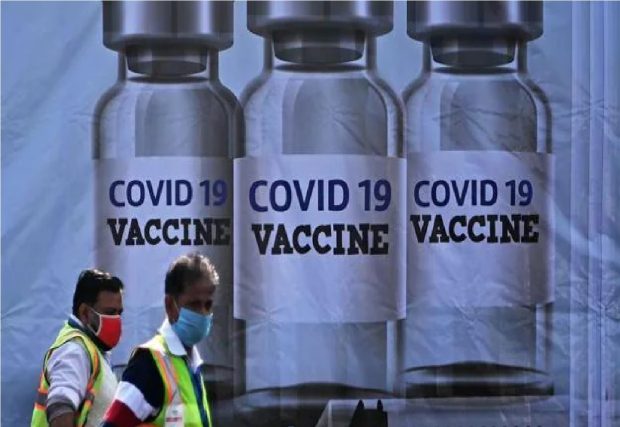
India’s ‘warm’ vaccine candidate effective against Delta, Omicron variants in mice: Study
PTI, Apr 16, 2022, 12:58 PM IST

Aheat-stable COVID-19 vaccine that is being developed in India and does not need cold chain storage has generated strong antibody response against coronavirus variants, including Delta and Omicron, according to a study on mice.
The vaccine candidate, by the Indian Institute of Science (IISc) in Bengaluru and biotech start-up company Mynvax, uses a part of the viral spike protein called the receptor-binding domain (RBD), which allows the virus to connect with the host cell to infect it.
The team, including researchers from Australia’s Commonwealth Scientific and Industrial Research Organisation (CSIRO), noted that most vaccines require refrigeration to remain effective. The heat-tolerant COVID-19 vaccine candidate can be stored at 37 degrees Celsius for four weeks and at 100 degrees Celsius for up to 90 minutes.
In comparison, the Oxford-AstraZeneca vaccine, known as Covishield in India, must be kept between 2-8 degrees Celsius and the Pfizer preventive requires specialised cold storage at minus 70 degrees Celsius.
The latest study, published recently in the journal Viruses, assessed vaccinated mice sera (blood samples) for efficacy against key coronavirus variants, including Delta and Omicron.
The study found that mice immunised with different formulations of the vaccine elicit high titres (unit to measure amount or concentration) of antibodies that neutralise SARS-CoV-2 variants VIC31 (reference strain), Delta and Omicron variants of coronavirus. Compared to VIC31, there was an average 14.4-fold reduction in neutralisation against the Omicron variant for one formulation of the Mynvax vaccine and a 16.5-fold reduction for another formulation.
The corresponding values for reduction in neutralisation against Delta variant were 2.5 and 3, according to the researchers.
”The average 14.4- or 16.5-fold reduction in neutralisation against Omicron BA.1.1 for the monomeric and trimeric formulations, respectively, compares favourably with equivalent reductions observed with leading COVID-19 vaccines,” the authors of the study noted.
“Our findings suggest that monomeric formulations are suitable for upcoming Phase I human clinical trials and that there is potential for increasing the efficacy with vaccine matching to improve the responses against emerging variants,” they wrote in the journal.
Monomeric and trimeric formulations refer to different shapes and combinations that can be used to develop the vaccine.
CSIRO’s evaluation of the different Mynvax formulations will support the selection of the most suitable candidate and dosage for planned human clinical trials in India.
The heat tolerance of the vaccine and its ability to withstand transient thermal shocks is particularly promising to address the vaccine inequity that affects most low- and lower-middle-income countries, the researchers added.
Over 10 billion doses of COVID-19 vaccines have been administered globally and 51 countries have reached more than 70 per cent of their population. However, this is only 11 per cent in low-income countries.
Udayavani is now on Telegram. Click here to join our channel and stay updated with the latest news.
Top News

Related Articles More

Army Havaldar Anoop Poojary cremated with full honours in Karnataka’s Udupi

13-year-old rape victim dies after giving birth to stillborn baby in Rajasthan’s Dungarpur

Row over Shah’s Ambedkar remarks: Dalit, Adivasi, OBC groups to protest in Gujarat on Dec 28

Kerala bids emotional farewell to MT Vasudevan Nair

‘Shameful, condemnable’: Rahul slams police action against protesting BPSC candidates in Patna
MUST WATCH
Latest Additions

Army Havaldar Anoop Poojary cremated with full honours in Karnataka’s Udupi

13-year-old rape victim dies after giving birth to stillborn baby in Rajasthan’s Dungarpur

YouTuber and his girlfriend rescued from drowning by IPS officer in Goa

Row over Shah’s Ambedkar remarks: Dalit, Adivasi, OBC groups to protest in Gujarat on Dec 28

Kerala bids emotional farewell to MT Vasudevan Nair
Thanks for visiting Udayavani
You seem to have an Ad Blocker on.
To continue reading, please turn it off or whitelist Udayavani.





















